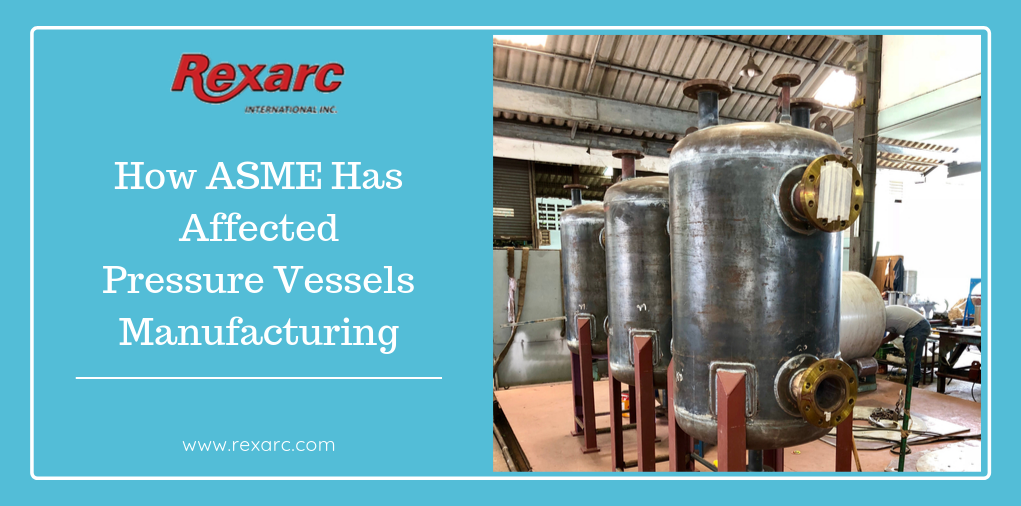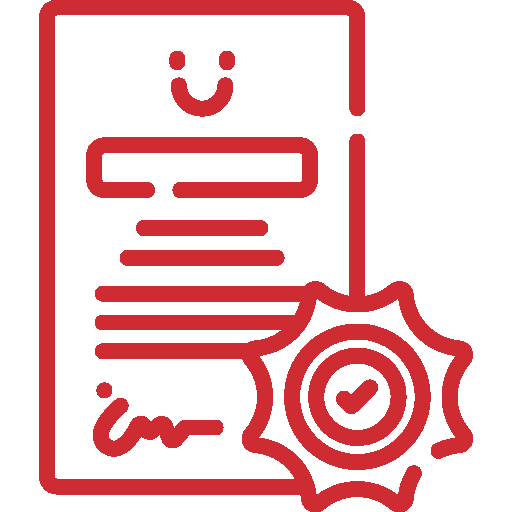Rexarc is currently open from 7:30 AM – 4:00 PM EST, Monday – Friday. Read More
Rexarc is currently open from 7:30 AM – 4:00 PM EST, Monday – Friday. Read More

Pressure vessels are cylindrical close containers used in various industries for storing various types of toxic and non-toxic elements such as gases, liquids, and semi-solids. These fluids are stored at different pressures and temperatures in bulk quantities. If the pressure vessel fails to perform then the consequences can be dangerous. To avoid this, pressure vessel manufacturers in the US and Canada adhere to ASME pressure vessel manufacturing codes. These codes describe the specifications and exact features that will help ensure the safety of these vessels and help avoid fatal accidents in facilities where they are used. Are you interested in knowing more about these codes and their adherence during different phases of ASME pressure vessel manufacturing? Read the post to know more.
A Brief Introduction to ASME
The American Society of Mechanical Engineers or ASME is an independent accreditation body that regulates the design and manufacturing of pressure vessels and boilers. Founded in 1880, the organization was formed as a society to help mechanical engineers resolve their work-related issues. In years following its establishment, several pressure vessel and boiler accidents were reported. These accidents lead to loss of lives and property, which prompted the society to form the Boiler Testing Code in 1884 and Boiler and Pressure Vessel Code (BPVC) in 1915. Today, ASME operates as an independent accreditation body.
ASME has proposed a national body for the implementation of national standards. As a result, the American Engineering Standards Committee came into existence in 1919. The organization is today known as the American National Standards Institute (ANSI), which works with ASME to develop boiler and pressure vessel manufacturing standards.
An Overview of ASME Pressure Vessel Manufacturing
ASME Section VIII is a leading pressure vessel manufacturing standard that is widely adopted by pressure vessel manufacturing companies across the world. It covers various sections including rules for construction of power boilers, nuclear facility components, heating boilers, and so on. It also describes the materials to be used, ASME pressure vessel fabrication procedures to be followed, and in-service inspection requirements. The code is divided into three divisions— division 1, division 2, and division 3. The codes mentioned across these three sections govern the designing, manufacturing, construction, and testing of pressure vessels required to withstand internal and external pressures of 15 PSI and above.
The implementation of these codes has helped improve the quality of pressure vessels. Along with the regulation of these codes, ASME has been focusing on avoiding accidents in critical environments where diverse activities are performed. It regulates code for diverse activities such as safe railway transport, heavy lifting, nuclear power, and steam turbines.
If a manufacturer fails to follow the guidelines in code, then the pressure vessels are not eligible for ASME certification and they may not be considered ideal for use. Hence, if you are planning to source your pressure vessels and boilers from a trusted manufacturer, ensure to source it from a trusted ASME pressure vessel fabricator like Rexarc. The company has earned its ASME Section VIII certification and is also able to comply with AS1210, which is an Australian pressure vessel regulation code.

We are a one stop shop from custom vessel production to full skidding, plumbing and instrumentation.

We stand by our processes and communicate with you on your project status as much or as little as you would like.

We continually reinvest in our people, business, and equipment technology to ship quality products on time.
